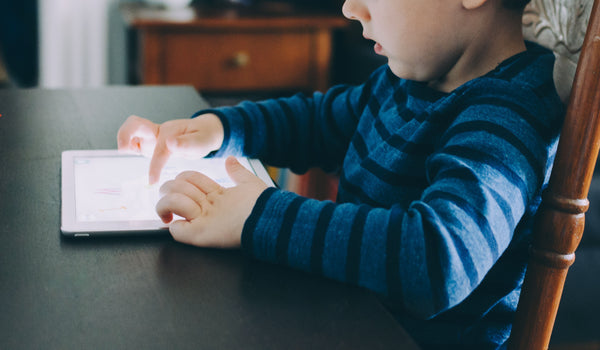Parenting a Child with ADHD: 3 Sure-Fire Strategies for Better Communication

Clear communication makes for strong parent-child relationships. It is especially important for parents of children with Attention-Deficit/Hyperactivity Disorder (ADHD) where communication issues are more common due to the unique brain function for a child with ADHD.
Because of impaired executive functioning, the ADHD brain doesn’t complete some tasks as smoothly as others. This impacts communication in many ways, including some of the following issues:
- Listening Comprehension Challenges: You have probably heard that children with ADHD have trouble paying attention. This is because sometimes the brain acts like a skipping record – the child’s attention span occasionally skips a beat and misses bits of information. This is particularly evident when they encounter rapid speech patterns or noisy environments. Because of this, some parents believe their child is oppositional, assuming she doesn’t care to complete the assigned task, follow directions, or even converse together, when truly, she has simply missed important info through no fault of her own.
- Language and Speech Delays: Even when no speech delays are present, kids with ADHD have trouble with language. Finding the right word, responding quickly in conversation, and getting off-topic while speaking are all problems for children with ADHD. This can lead outside observers to assume there is an intelligence issue, but that is not usually the case. Kids with ADHD are often very intelligent, they just get tripped up when taking on information and relaying it back.
- Missed Social Cues: Because communication is such a challenge, kids with ADHD devote lots of energy to it. This leads them to miss important social cues when interacting with others. They may blurt things out in class, interrupt their friends, or talk too much. This creates barriers in social environments that require the perception of social norms to succeed, affecting things like academic performance and peer relationships.
Because of these added complexities, parents of children with ADHD have a special challenge when it comes to establishing clear communication. But these 3 sure-fire strategies can help:
Never Stop Learning About ADHD
Your child is going to experience emotional struggles. This is mainly due to the tension between the way their brain works and the environments they navigate every day. A little empathy for your child goes a long way, but in order to get there, you need to arm yourself with knowledge.
You can familiarize yourself with the challenges your child is facing through the countless psychoeducational resources designed to help parents learn the ins and outs of ADHD. Knowledge is power and the right frame will allow you to respond to your child in ways that protect your relationship.
Here are a few excellent resources to get you started:
- ADDitude Magazine: This online publication offers informative, well-researched content on ADHD. Sign up for their free newsletter for helpful tips specifically designed for parents of children with ADHD.
- CHADD (Children and Adults with Attention Deficit Hyperactivity Disorder): This organization has been around since 1987 and is an absolute gold mine of information. They have an entire section devoted to parents and caregivers of children with ADHD and offer free webinars for added support.
- My Moods, My Choices Blog: This blog is geared toward parents, teachers, and professionals and features regular content on emotion regulation, emotional intelligence, and parenting strategies. You’ll find several informative articles on ADHD as well.
Use Visual Supports Whenever Possible
Kids with ADHD have difficulty taking information on board when it’s given in rapid bursts. They also struggle with recalling the information later. Visual supports allow parents to deliver information both verbally and visually, as well as offer something they can refer to again and again.
Here are a few visual tools that are guaranteed to improve communication with your child:
- Visual Schedules: A visual schedule is a graphic representation of what will take place over a given timeframe. Use them to breakdown each step of a task and when each step should be completed. For example, if you want your child to clean his room, make a visual schedule that illustrates each step of the process through drawings or pictures.
- How Are You Feeling? Poster and Magnets: These visual tools from My Moods, My Choices are an excellent way to foster clear communication with your child. When you notice a mood change, pull out the magnets or point to the poster to engage your child in a conversation about feelings.
Parental Self-Care
Like psychoeducation, regular self-care will keep you in the right state of mind when communicating with your child.
The airline safety analogy really holds true – you need to secure your own oxygen mask first to survive long enough to help your child. When you take care of yourself, you are better equipped to ride out whatever emotional rollercoaster your child is experiencing.
Take an adult time-out or use some deep breathing when you feel yourself start to react. And whenever possible, participate in the activities that fill your inner well. Self-care will help you stay consistent, hold space for your child, and communicate more clearly. Check out this post from Motherly for some creative self-care ideas.
Hayley Gallagher, LPC, is a licensed professional counselor, writer, and mom, with more than 15 years of experience working with kids and families. She is the creator of thecenteredparent.com – where she shares tips on parenting, mental health, self-care, and family wellness.
Also in Blogs

Does Your Child Live in a High-Conflict Environment?

“What's On?” The Impact Of Media On Kid's Emotional Well-being

